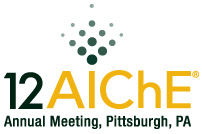

(i) variation in feed CO2 composition (ranging from 1 to 90%) and total feed flow rate (ranging from 0.1 to 10 kmol/s);
(ii) CO2 capture coupled with compression to 150 bar;
(iii) rate-based modeling of the MEA absorption-based CO2 capture coupled with heat integration;
(iv) multi-stage superstructure model for CO2 capture using membranes;
(v) detailed and grey-box modeling of PSA and VSA alternatives for the adsorption-based CO2 capture;
(vi) cost-based comparison between the absorption, membrane, PSA and VSA-based CO2 capture technologies for different emission scenarios; and
(vii) explicit expressions for the investment and operating costs as function of feed CO2 composition and total feed flow rate.
In this talk, we will discuss our approach towards the modeling, simulation and optimization of each of the four technologies. A rigorous simulation-based optimization model is proposed to determine the minimum annualized cost of the MEA-absorption process. The MEA-absorption process is further heat integrated through heat exchanger network optimization. A novel mathematical model is developed for the optimization of multi-stage and multi-component separation of CO2 using membranes, which can be also used for a range of membrane-based gas separation applications. A 4-step cyclic process with multiple adsorption columns, purging and product recovery at moderate to low vacuum is configured for the PSA and VSA processes. A PDE-based non-isothermal adsorption model is used, which are fully discretized and optimized via a Kriging model.
We will also present a cost-based technology comparison over a range of feed gas compositions and flow rates. This may assist the decision-makers to select the cost-appropriate technology for CO2 mitigation by taking the diverse emission scenarios into consideration. Furthermore, we will discuss an explicit input-output model for the investment and operating costs for the first time. This would provide a basis towards scaling up a CO₂ capture process, and lay the foundation for (i) process synthesis studies, and (ii) CO₂ supply chain network studies in the carbon management domain.
